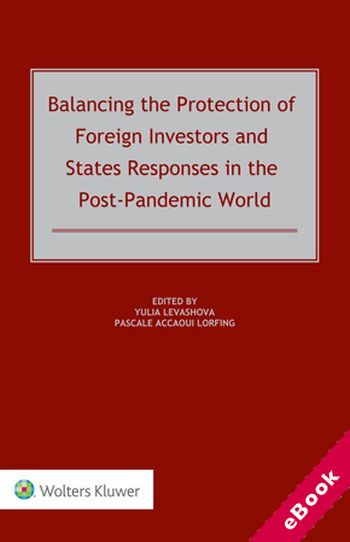
The device(s) you use to access the eBook content must be authorized with an Adobe ID before you download the product otherwise it will fail to register correctly.
For further information see https://www.wildy.com/ebook-formats
Once the order is confirmed an automated e-mail will be sent to you to allow you to download the eBook.
All eBooks are supplied firm sale and cannot be returned. If you believe there is a fault with your eBook then contact us on ebooks@wildy.com and we will help in resolving the issue. This does not affect your statutory rights.
Balancing the Protection of Foreign Investors and States Responses in the Post-Pandemic World is a crucial and well-timed book penned by top professionals in the field who offer a detailed investigation of the measures that States have taken, or have failed to take, to deal with the pandemic’s ramifications and whether these actions or inactions can be interpreted as investment arbitration risks. The COVID-19 pandemic has turned the spotlight on the debate on reform of the international investment agreement regime with renewed force.
What’s in this book:
This book is an expansive synopsis of the impact of COVID-19 on States and investors, including perspectives from UNCTAD, the European Union, the United States, Russia, India, South Korea and the African Union. This exhaustive guide on State defences and investor protection mechanisms grapples with the following aspects of the debate as affected by the pandemic:
The concluding part of the book is devoted to analysing case studies from around the world through the lens of the pandemic and investor-State disputes.
How this will help you:
Comprehending the way public health emergencies can shape international investment law is key to building a sustainable, stable investment environment. As the first thorough analysis of the post-pandemic development of investment law, this nonpareil compendium takes a giant leap towards appeasing the interests of foreign investors and sovereign States at different stages of economic development. With pragmatic recommendations for both States and investors, it will prove to be invaluable to practitioners, policymakers, and academics in anticipating and combatting not only COVID-related measures but also analogous future contingencies.